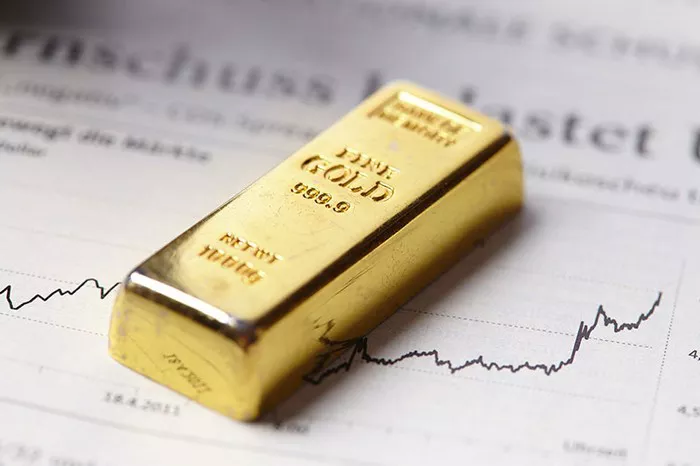Gold bullion stands as a timeless symbol of wealth and stability, coveted by investors and collectors alike. In its essence, gold bullion refers to refined and stamped gold of high purity, typically in the form of bars or coins. The purity levels that qualify as bullion often exceed 99.5%, ensuring its intrinsic value and universal recognition in the market. While gold bars are typically cast in various weights ranging from small grams to hefty kilograms, gold coins, bearing the stamp of recognized mints, serve as both investment vehicles and collectibles, boasting historical and numismatic value.
Current Market Value
Understanding the dynamic nature of gold prices is crucial for those seeking to cash in their bullion. The current spot price of gold, which reflects the value of one troy ounce of pure gold in the global market, serves as the baseline for transactions. This price is determined by factors such as supply and demand dynamics, geopolitical tensions, economic indicators, and investor sentiment. Keeping abreast of market fluctuations and historical price trends empowers sellers to make informed decisions regarding the timing of their transactions, maximizing their returns.
As of April 16, 2024, the spot price of gold stands at $2,355.70 per troy ounce. While this figure provides a snapshot of the market at a given moment, it is subject to change as trading continues across different time zones. Historical data reveals gold’s resilience as a safe-haven asset, with prices often surging during times of economic uncertainty or geopolitical instability, making it an attractive option for risk-averse investors seeking to diversify their portfolios.
Selling Process
Embarking on the journey to sell gold bullion necessitates a systematic approach to ensure a smooth and profitable transaction. The process typically begins with assessing the weight and purity of the bullion, either through professional appraisal or utilizing specialized equipment such as precision scales and acid testing kits. Armed with this information, sellers can accurately gauge the value of their assets and negotiate prices with potential buyers.
Choosing where to sell gold bullion warrants careful consideration, as different avenues offer varying levels of convenience, security, and potential returns. Online retailers provide a convenient platform for selling bullion, offering competitive prices and a wide reach to potential buyers. Pawn shops and jewelry stores present alternative options, allowing for face-to-face transactions and immediate cash payments. However, sellers must exercise caution and conduct due diligence to ensure the legitimacy and reputation of the buyer, guarding against fraudulent activities and subpar offers.
Reputable Buyers
Identifying reputable buyers is paramount to the success of any gold bullion transaction, safeguarding sellers against potential scams and exploitation. Online retailers, boasting transparent pricing and stringent verification processes, offer a secure and convenient avenue for selling bullion, catering to a global audience of investors and collectors. Pawn shops and jewelry stores, while providing immediate cash payments, may lack the same level of transparency and regulatory oversight, necessitating thorough research and scrutiny before engaging in transactions.
Furthermore, sellers should explore the option of selling their bullion to established bullion dealers and refineries, who specialize in the purchase and refinement of precious metals. These entities often offer competitive prices and adhere to industry standards and regulations, providing peace of mind to sellers seeking a trustworthy and reliable partner.
Legal Considerations
Navigating the legal landscape surrounding the sale of gold bullion is imperative to avoid running afoul of regulatory requirements and tax obligations. While the sale of personal gold holdings is generally not subject to capital gains tax in many jurisdictions, sellers should consult with tax professionals to ensure compliance with local laws and regulations. Additionally, certain jurisdictions may impose reporting requirements for large transactions exceeding specified thresholds, necessitating diligent record-keeping and documentation.
Safety Tips
Ensuring the safety and security of both the seller and the bullion throughout the transaction process is of paramount importance. When transporting gold bullion to potential buyers or appraisal locations, sellers should exercise discretion and avoid drawing attention to themselves. Utilizing secure transportation methods, such as registered mail or armored vehicles, minimizes the risk of theft or loss during transit.
Moreover, conducting transactions in well-lit and public locations, such as reputable pawn shops or jewelry stores, reduces the likelihood of fraudulent activities and ensures a safe and transparent exchange. Sellers should remain vigilant and trust their instincts, refraining from engaging with individuals or entities that raise suspicions or exhibit unprofessional behavior.
Alternatives to Selling
While selling gold bullion offers immediate liquidity and cash returns, exploring alternative options can provide additional flexibility and opportunities for wealth preservation. Gold bullion can serve as valuable collateral for securing loans from financial institutions, leveraging its intrinsic value to access capital for various purposes. Furthermore, investors may opt to trade their bullion for other tangible assets, such as real estate or fine art, diversifying their portfolios and hedging against market volatility.
In conclusion, cashing in gold bullion requires careful planning, research, and diligence to navigate the complexities of the market effectively. By understanding the fundamentals of gold bullion, staying informed about market trends, and exercising caution when engaging with buyers, sellers can optimize their returns and embark on a journey towards financial empowerment and security.


